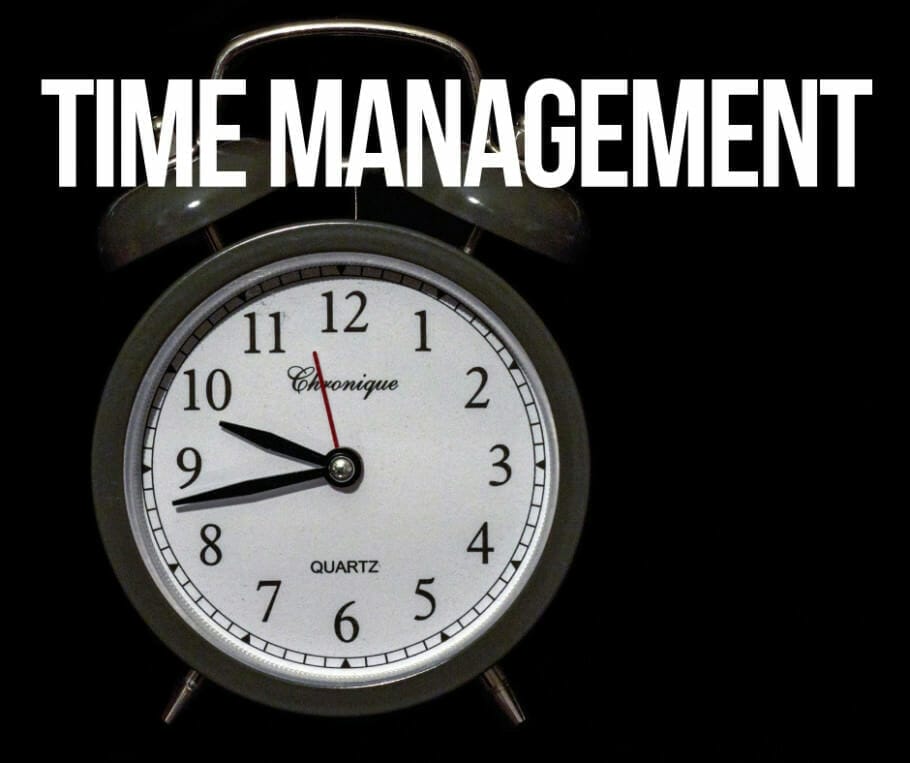For their successful, good life Information you really need: Government-funded publisher, awarded the Global Business Award as Publisher of the Year: Books, Shops, data-driven AI-Services. Print and online publications as well as the latest technology go hand in hand - with over 20 years of experience, partners like this Federal Ministry of Education, customers like Samsung, DELL, Telekom or universities. behind it Simone Janson, referenced in ARD, FAZ, ZEIT, WELT, Wikipedia.
Disclosure & Copyright: Images created as part of a free collaboration with Shutterstock. Text originally from: “Self-efficacy: Clear on the inside, strong on the outside” (2015), published by BusinessVillage Verlag, reprinted with the kind permission of the publisher.
Mindset Shift: Break the power of self-fulfilling prophecy
By Jens Korz (More) • Last updated on October 07.04.2024, XNUMX • First published on 25.02.2016/XNUMX/XNUMX • So far 5276 readers, 1947 social media shares Likes & Reviews (5 / 5) • Read & write comments
Do you know the principle of self-fulfilling prophecy? So something happens because you are convinced that it will happen. Because our perception determines the result.

- The self-fulfilling prophecy
- I am not valuable? Nonsense!
- They send this message
- Please check your faith
- What we think must be true
- Too little use
- 6 Typical beliefs
- How do beliefs arise?
- The experience makes it
- The danger of thinking loops
- 6 Typical beliefs
- How do beliefs arise?
- The experience makes it
- The danger of thinking loops
- Top books on the subject
- Read text as PDF
- Advice on success, goal achievement or marketing
- Book eCourse on Demand
- Skate eBook as desired
The self-fulfilling prophecy
Maybe you know that from yourself or from others Peoplethat they/we often attract exactly what they/we believe in:
That's exactly where she learns Ms., who is convinced that no man will ever be serious about her, only ever know such men who then treat her really badly and are not serious about her. A possible belief could be: "I am not lovable."
I am not valuable? Nonsense!
The books on the subject (advertising)
Such negative beliefs are very often generalizations that carve something rock-solid into stone that doesn't always have to be true. This often makes life difficult for us, because we are closed off from the possibility of having other, perhaps much more positive experiences.
For example, a clerk who feels that because of her Performance and their diligence must get a raise. Unfortunately, she is waiting for this increase to be offered to her, i.e. for her performance to be seen and thus rewarded.
They send this message
Since she carries the belief "I am not valuable" in herself, she does not come up with the Ideato propose or demand a salary increase.
With her superior, however, comes the message indicate that with their payment satisfied and therefore there is no need for action for him. The logical consequence of this is that she doesn't get a raise and her belief "I'm not valuable" is confirmed.
Please check your faith
Discounts for your success (advertising)!
The Problem The belief pattern listed here is due to the limiting belief that prevents the clerk from expressing her desires and Set to reach. It shows how people often act according to the ancient beliefs that arose in their childhood and youth.
Unfortunately, these beliefs are no longer consciously checked in adulthood, but remain anchored in the subconscious of the people and thus determine their actions, even if these beliefs are no longer true.
What we think must be true
When we believe something, we act as if what we think is true. This Behavior leads to corresponding reactions in our fellow human beings.
We then see their reactions through the spectacles of our doctrine of faith, and above all perceive this as meaningful, which again confirms the doctrine of faith. Our thought pattern acts as a filter of our perception, which confirms events in the sense of what we believe.
Hand honestly, how often do you think: "I'll never make it anyway"? Unfortunately, it is precisely this belief that ensures that this is exactly what happens. Result: They don't make it either, but get stuck in the morass of their negative beliefs.
Too little use
Hand on heart, how often do you think: “I can never do it anyway”? Unfortunately, this belief ensures that this is exactly what happens. Result: They don't make it either, but get stuck in the morass of their negative beliefs.
There is an obvious reason for this: Followers of the belief “I can never do it anyway” will approach their goals with little inner strength and self-confidence. They will also see minor obstacles or setbacks as confirmation of their belief. Eventually they will give up entirely, which in turn confirms their thinking pattern.
6 Typical beliefs
Restraining beliefs prevent us from reaching our desires and goals. Such as:
- I am only loved when I bring performance.
- I never find a partner that suits me.
- Life is hard.
- All beginnings are difficult.
- I can not do it.
- I am not worth it.
How do beliefs arise?
But how do such beliefs actually arise? Most of the convictions in our childhood when we take the messages from important reference persons. The most important roles are played by the parents, but also grandparents, teachers, siblings or other people who are important to us such as friends, sports trainers, music teachers, etc.
But even in the adult age beliefs can be formed. They arise from the experiences of life and often lead us to experience certain situations again and again.
The experience makes it
For example, the experience “I am only loved when I help others” or “If I do exactly what my partner says, then she will love me.”
Another reason for the Education of beliefs is a unique experience with a strong emotional character.
An example of this would be that a family member dies in a car accident. As a result, the belief that "All cars are dangerous, I will never drive a car" is formed.
The danger of thinking loops
Finally, beliefs arise through a permanent repetition of one and the same thought.
For example: "I can't do it."
There is an obvious reason for this: Followers of the belief “I can never do it anyway” will approach their goals with little inner strength and self-confidence.
Even minor obstacles or setbacks will see them as confirmation of their beliefs. Eventually, they will give up altogether, which in turn confirms their thought pattern.
6 Typical beliefs
Restraining beliefs prevent us from reaching our desires and goals. Such as:
- I am only loved when I bring performance.
- I never find a partner that suits me.
- Life is hard.
- All beginnings are difficult.
- I can not do it.
- I am not worth it.
How do beliefs arise?
But how do such beliefs actually arise? Most of the convictions in our childhood when we take the messages from important reference persons. The most important roles are played by the parents, but also grandparents, teachers, siblings or other people who are important to us such as friends, sports trainers, music teachers, etc.
But even in the adult age beliefs can be formed. They arise from the experiences of life and often lead us to experience certain situations again and again.
The experience makes it
For example, the experience “I am only loved when I help others” or “If I do exactly what my partner says, then she will love me.”
Another reason for the formation of beliefs is a one-time experience with a strong emotional expression.
An example of this would be that a family member dies in a car accident. As a result, the belief that "All cars are dangerous, I will never drive a car" is formed.
The danger of thinking loops
Finally, beliefs arise through a permanent repetition of one and the same thought.
For example: "I can't do it."
Top books on the subject
Read text as PDF
Acquire this text as a PDF (only for own use without passing it on according to Terms and conditions): Please send us one after purchase eMail with the desired title supportberufebilder.de, we will then send the PDF to you immediately. You can also purchase text series.
4,99€Buy
Advice on success, goal achievement or marketing
You have Ask about career, Recruiting, personal development or increasing reach? Our AIAdviser helps you for 5 euros a month – free for book buyers. We offer special ones for other topics IT services
5,00€ / per month Book
Book eCourse on Demand
Up to 30 lessons with 4 learning tasks each + final lesson as a PDF download. Please send us one after purchase eMail with the desired title supportberufebilder.de. Alternatively, we would be happy to put your course together for you or offer you a personal, regular one eMail-Course - all further information!
29,99€Buy
Skate eBook as desired
If our store does not offer you your desired topic: We will be happy to put together a book according to your wishes and deliver it in a format of yours Choice. Please sign us after purchase supportberufebilder.de
79,99€Buy
Here writes for you
 Jens Korz is a personality trainer. Korz, born in 1969, is one of the most booked experts in Germany on the subject of external impact. He has a degree in business administration, actor and psychologist and is a Reiki master and has many years of experience in middle management as a sales manager. He also has a teaching position at the University of Economics and Law in Berlin. More information at thekoach.de All texts by Jens Korz.
Jens Korz is a personality trainer. Korz, born in 1969, is one of the most booked experts in Germany on the subject of external impact. He has a degree in business administration, actor and psychologist and is a Reiki master and has many years of experience in middle management as a sales manager. He also has a teaching position at the University of Economics and Law in Berlin. More information at thekoach.de All texts by Jens Korz.
3 Responses to “Mindset Shift: Breaking the Power of Self-Fulfilling Prophecy”
-
Success through self-efficacy - 3: Self-fulfilling prophecies: Beliefs are very often generalizations ... - Exciting contributionATZvqvac6N
-
Success through self-efficacy - 3: Self-propelling prophecies via BERUFEBILDER - Exciting contributionUvgeAnhlyv
-
Success through self-efficacy - 3: Self-propelling prophecies via BERUFEBILDER - Exciting contribution7D96naJZOO



















Post a Comment